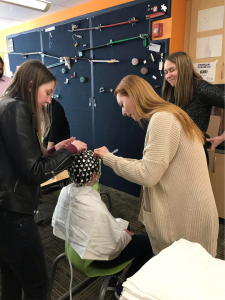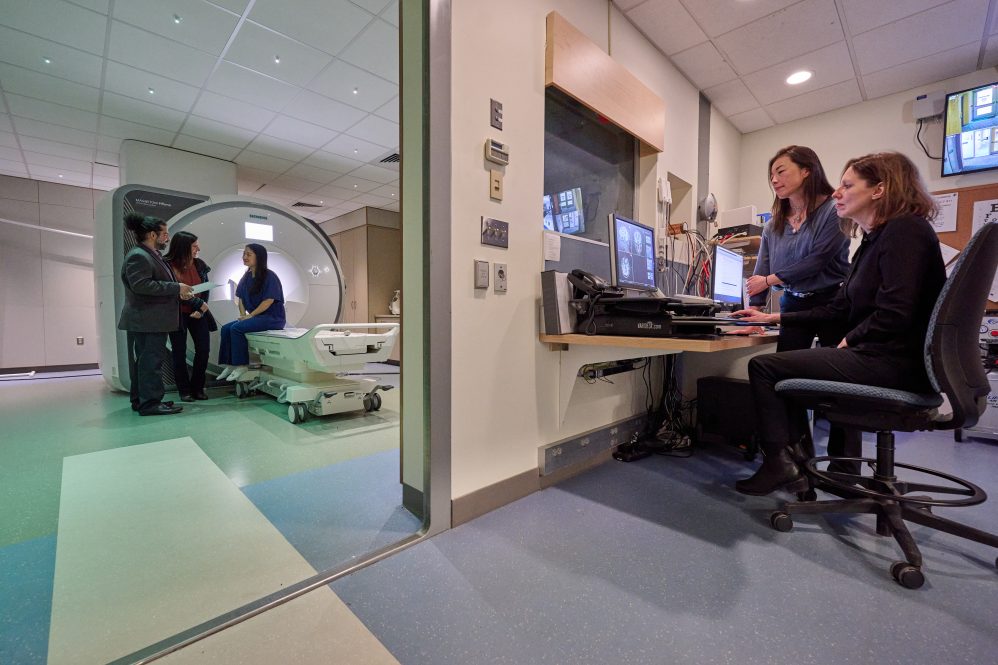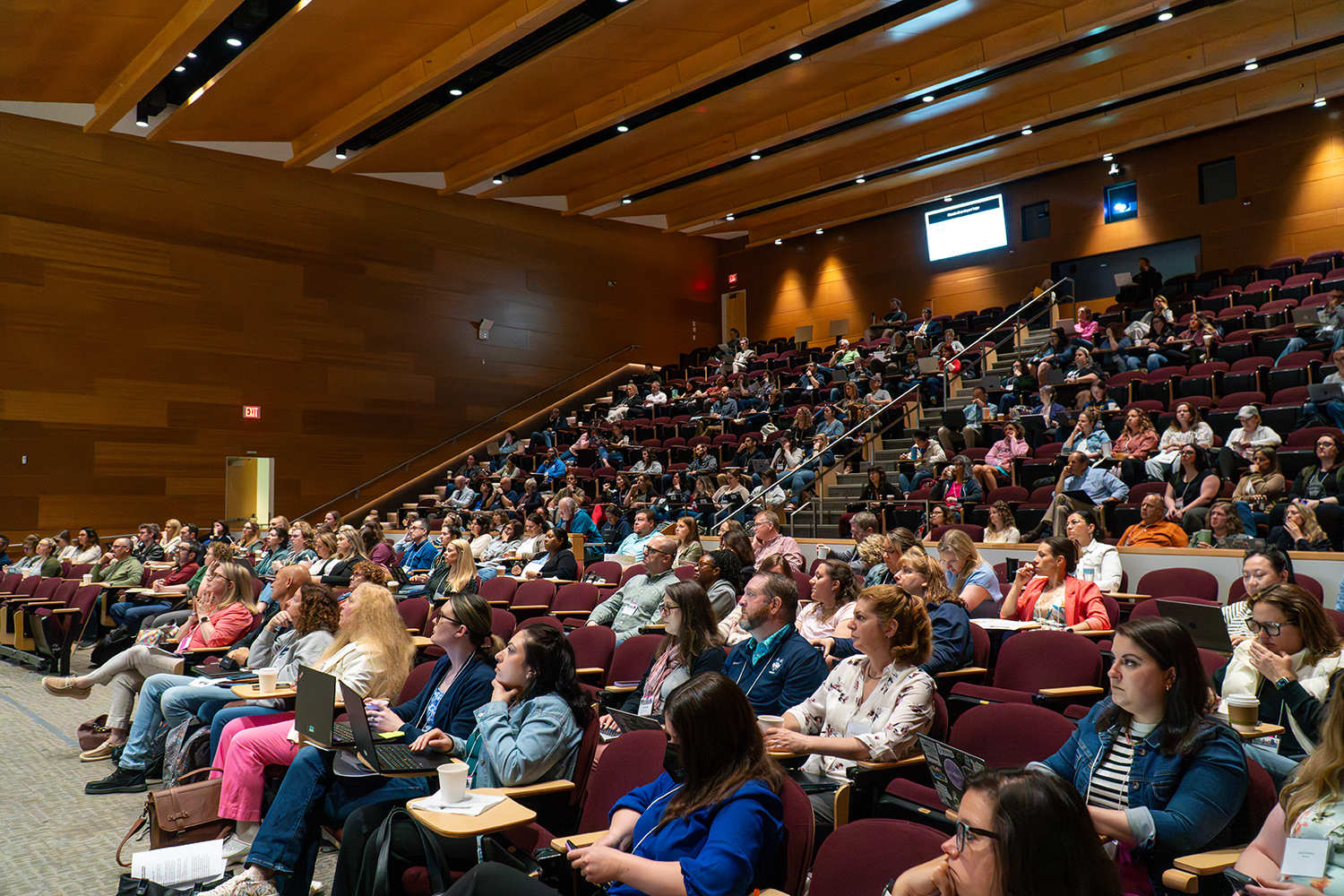An ambitious team of researchers from across the University has won $3mn from the National Science Foundation to pursue a project in the neuroscience of learning.
The program, known as TRANSCEND: TRANSdisciplinary Convergence in Educational Neuroscience Doctoral training, aims to get graduate students from both classic and atypical backgrounds into educational neuroscience research.
“We will take an innovative approach and truly break the silos in educational neuroscience between lab research, research in the schools and the community. We also have a particularly strong focus not only on neurodiverse learners as the topic of research but also to involve them as graduate students. Neurodiverse learners are one of the most underrepresented groups in higher ed and the STEM workforce despite their tremendous talent,” says Fumiko Hoeft, interim director of the Waterbury campus, director of UConn’s Brain Imaging Research Center (BIRC) and the principal investigator on the project.
The team also includes co-principal investigators Assistant Professor of Educational Psychology Ido Davidesco, Associate Professor of Developmental Psychology Nicole Landi, Associate Professor of Civil and Environmental Engineering Arash Esmaili Zaghi, and Professor of Clinical Psychology Inge-Marie Eigsti; and co-investigators Professor of Psychology James Magnuson, Professor of Mathematics Fabiana Cardetti, Professor of Computer Science and Engineering Jinbo Bi, and Vice Provost for Graduate Education Kent Holsinger. Hoeft and Landi will co-direct TRANSCEND.

TRANSCEND will use the grant to allow second year graduate students to spend a full year researching convergent questions in educational neuroscience, with an emphasis on virtuous cycles between school and lab-based research, interdisciplinary team science, and in all areas of learning such as STEM and reading as well as developing the next generation of learning technologies using artificial intelligence (AI), with an underlying theme of neurodiversity.
The hope is that the students will then stay in the program and continue research on their topic of choice for their dissertation. Graduate students can be from any field of cognitive science, neuroscience, educational psychology, mathematics, computer science, and engineering. All graduate students in the program will have the opportunity to collect data in classrooms and in UConn labs, including the BIRC, the Cognitive Sciences Shared Electrophysiology Resource Lab, and the new mobile neuroscience lab by the College of Liberal Arts and Sciences that is planned to come online by this winter.
Community engagement will be key for generating project ideas and at every step of the process; graduate students will research questions that communities and teachers want answered. Leveraging Hoeft’s new position at UConn Waterbury and this grant, she hopes to engage the Waterbury students and the community to bring new programs and collaboration to the campus.
For example, a team of students from computer science, educational psychology and cognitive neuroscience may develop a learning technology leveraging AI and natural language processing models, using accessible neuroimaging technologies such as portable electroencephalography, in partnership with an education technology company and a school.
“We want every STEM and Education grad student in the University to know they can join this. The funding is for their second year, but we want the graduate students to stay involved in the program throughout graduate school,” says Arash Zaghi, a structural engineering professor.
Zaghi began researching neurodiversity when he was diagnosed with ADHD early in his career as an engineer. He found that there was a lot of research showing great creative potential from neurodiverse people, but also great difficulties that lead them to drop out of university settings. Part of the motivation behind this collaboration is to generate strategies that both teachers and students can use to create strength and success from neurodiversity.
Hoeft and Zaghi also emphasize that neurodiverse students are strongly encouraged to apply. The team has partnership with universities in the NSF INCLUDES national network such as Landmark College, a college for students with learning disabilities. They hope to attract their students into graduate school at UConn through this grant. There are also almost 40 other partners, including schools, the Connecticut Department of Education, advocacy groups, and technology companies, all of whom are interested in gaining interns from the program and participating in research through partnership with UConn. Through this program, their hope is that neuroscience can help design and deliver education that helps all students reach their full potential, and at the same time enhance the STEM workforce.
The program will soon be hosted on s.uconn.edu/transcend. For questions, please email transcend@uconn.edu.



